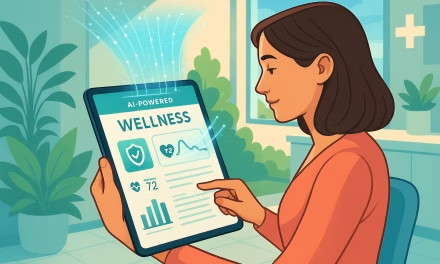The modern workplace is facing a mental health crisis. Rates of burnout, stress, and anxiety among employees are at an all-time high, and traditional support systems are struggling to keep up. In response, a new and perhaps unexpected ally has emerged: artificial intelligence. Companies are increasingly turning to AI-driven platforms to provide scalable, personalized, and accessible mental health support for their workforce.
This new wave of ‘workplace wellness AI’ is moving far beyond simple meditation apps. Sophisticated platforms are now capable of analyzing data from wearable devices and employee surveys to provide real-time insights into stress levels and well-being. These systems can generate personalized recommendations, from suggesting a short break or a mindfulness exercise to connecting an employee with a human therapist for more intensive support. The goal is to create a proactive and preventative ecosystem of care, rather than a reactive one.
The appeal for employers is clear. AI offers a way to provide a consistent level of support to a large and often distributed workforce, at a fraction of the cost of traditional mental health benefits. For employees, it can mean instant access to resources without the stigma or logistical hurdles of scheduling appointments. The anonymity of interacting with an AI can also make it easier for some to open up about their struggles.
However, the rise of the digital therapist is not without its challenges and ethical considerations. The most significant of these is privacy. For these systems to be effective, they need access to highly sensitive personal data. Ensuring that this data is secure, anonymized, and used ethically is paramount. Employees need to trust that their personal information will not be used against them, and that their privacy will be protected.
There is also the question of efficacy. While AI can be a powerful tool for providing information and initial support, it cannot replace the nuanced understanding and empathetic connection of a human therapist. The risk is that companies may see AI as a cheap replacement for genuine human-led mental health services, rather than a supplement to them. The most effective solutions will likely be those that blend the scalability of AI with the irreplaceable value of human connection.
Ultimately, the integration of AI into workplace wellness represents a profound shift in how we think about employee health. It is a powerful demonstration of how technology can be harnessed for social good, but it also serves as a stark reminder of the ethical responsibilities that come with it. As we move forward, the challenge will be to build a future where technology empowers us to be healthier and happier, without sacrificing the privacy and humanity that are essential to our well-being.





